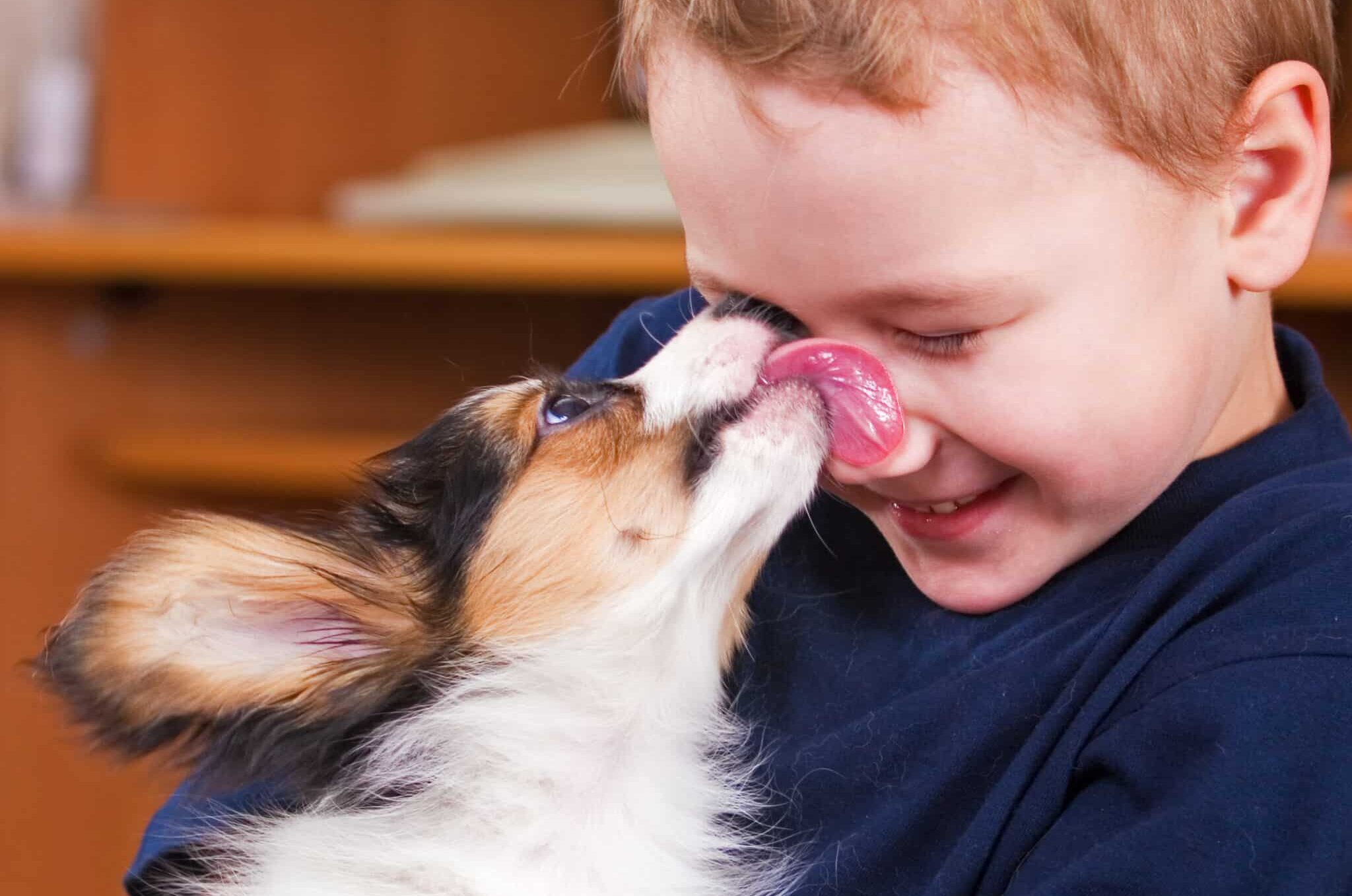 Shutterstock
Shutterstock
When a dog licks you, it’s natural to interpret it as a sign of affection, but the behavior often holds deeper meanings. While licking can show love, it also serves as a way for dogs to communicate, express emotions, and fulfill instinctive needs. Dogs may lick for attention, to taste something interesting, or to cope with anxiety or stress. Understanding why your dog licks can offer valuable insights into their behavior, revealing more than just affection and helping you connect more deeply with your furry friend on multiple levels.
Showing Affection and Bonding
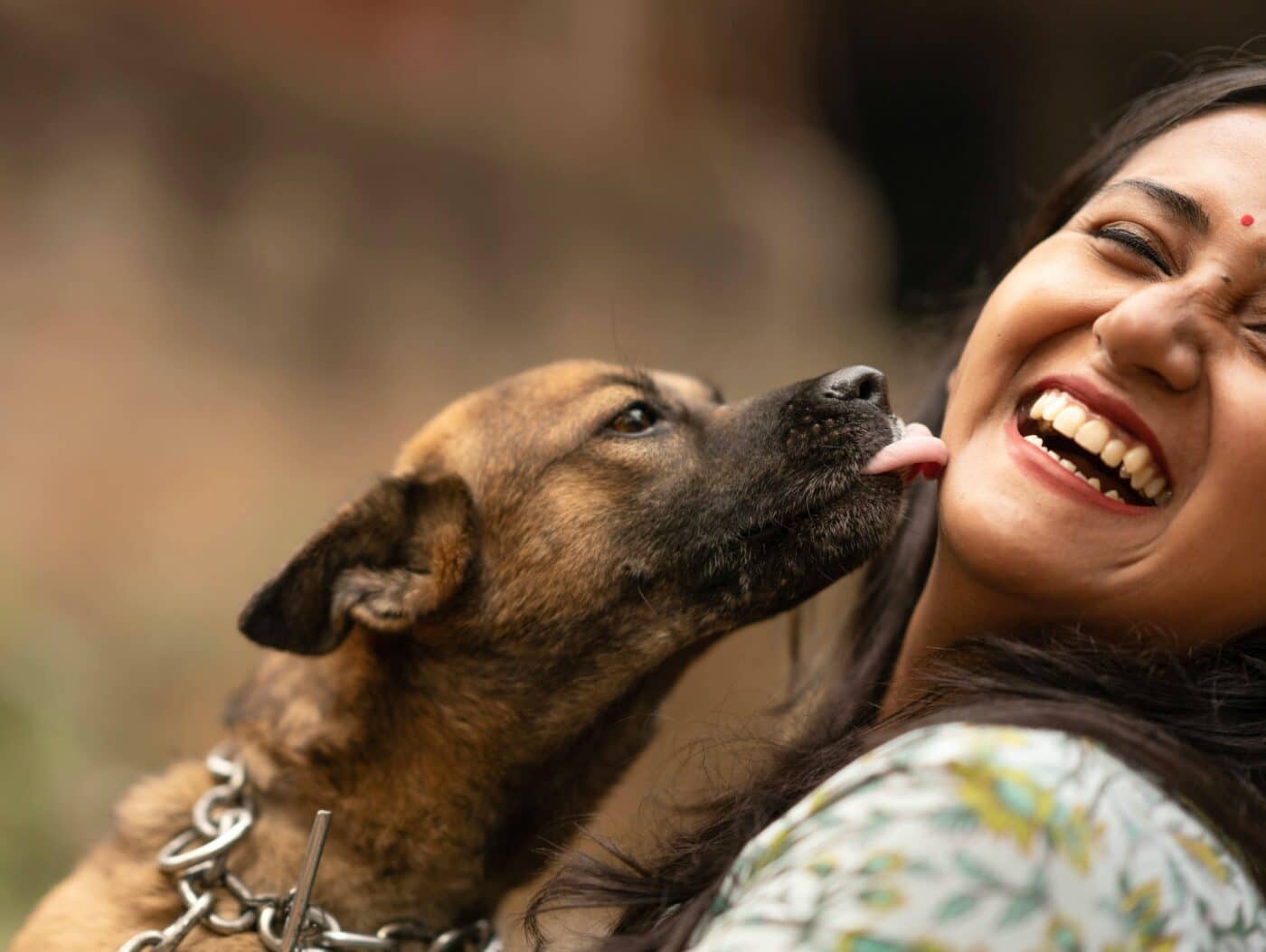 Shutterstock
Shutterstock
One of the most common reasons dogs lick their owners is to show affection. Much like humans use hugs or kisses to bond, dogs use licking to express their love and strengthen their bond with their favorite humans. From the moment puppies are born, licking is a significant part of their lives. Mother dogs lick their puppies to clean them, stimulate their bodily functions, and show them affection. This instinct carries into adulthood, where licking becomes a primary way dogs bond with their human families. When your dog licks you, they show that they feel safe and connected to you, reinforcing your bond.
Seeking Attention
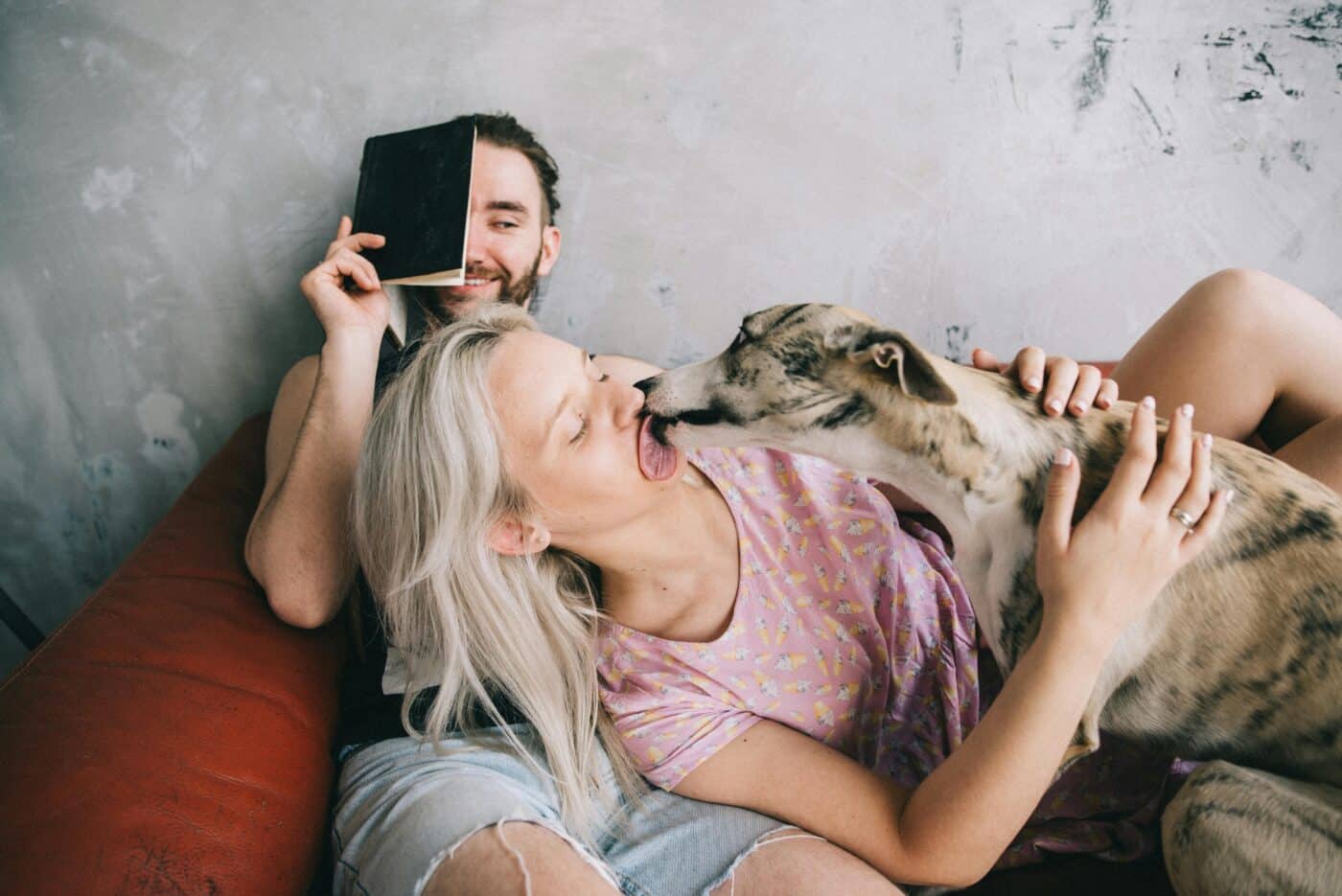 Shutterstock
Shutterstock
Licking can be a straightforward attention-seeking behavior. Dogs quickly learn that licking elicits a reaction from their humans—whether it’s a laugh, a pet, or even a playful scolding. When dogs want attention, they often resort to licking because it’s a behavior that never goes unnoticed. If your dog licks you and you respond with affection or play, they’ll associate licking with positive attention. Even a negative reaction can reinforce the behavior because, to your dog, attention of any kind is better than being ignored. By licking you, your dog is essentially asking for interaction, whether it’s playtime, petting, or just some one-on-one time.
Tasting Your Skin
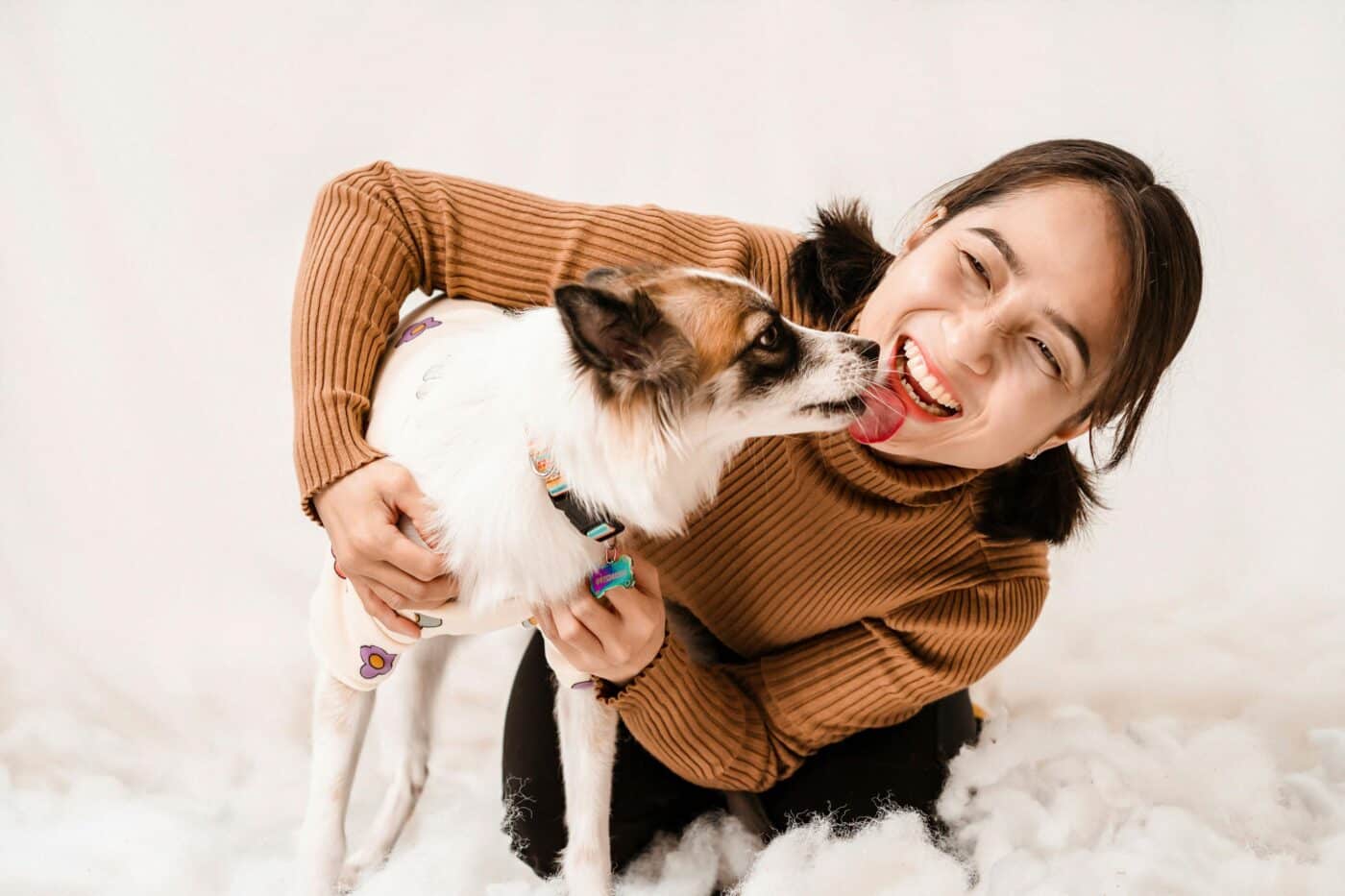 Shutterstock
Shutterstock
Believe it or not, dogs may lick you simply because they enjoy the taste of your skin. Human skin contains a variety of natural salts and oils, which can be appealing to dogs. This is especially true after exercise, when sweat adds extra saltiness to your skin. Some dogs are naturally drawn to licking salty skin as a way of “tasting” their environment. In addition to salt, lotions, perfumes, and other skin products can also be tempting for dogs. If your dog is licking you after you’ve applied a moisturizer or sunscreen, they might just be curious about the new scent or flavor.
A Sign of Submission
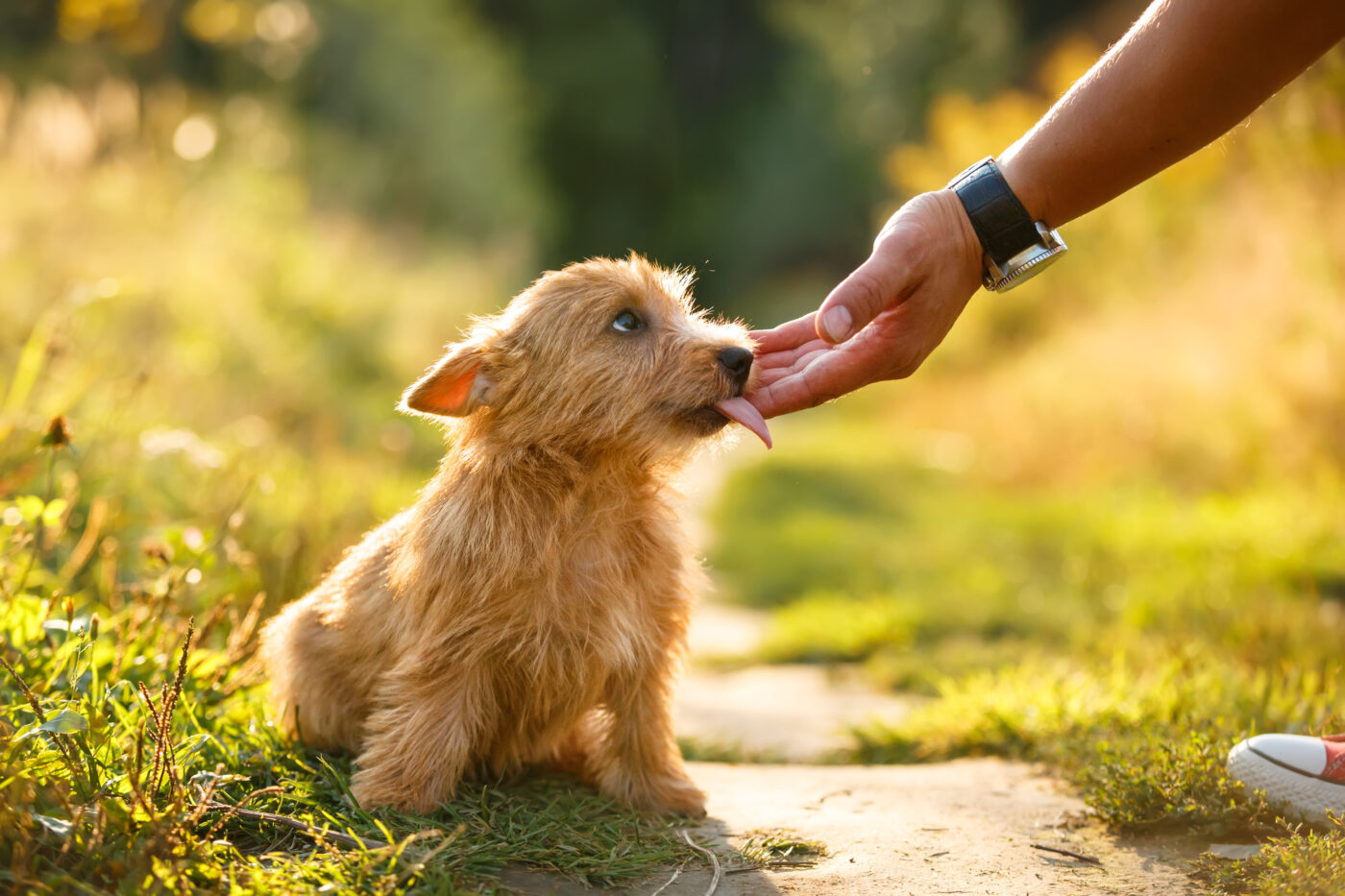 Shutterstock
Shutterstock
In the world of dogs, licking can also be a sign of submission, particularly when directed toward humans or more dominant dogs. In a pack, subordinate dogs often lick the faces of more dominant dogs to demonstrate respect and submission. This instinctual behavior can carry over to your relationship with your dog, especially if they view you as the “alpha.” When your dog licks you, it might be their way of showing respect or deferring to you as the leader of the pack. This submissive behavior helps reinforce the social hierarchy, letting your dog feel secure in their place in the family.
Exploring Their Environment
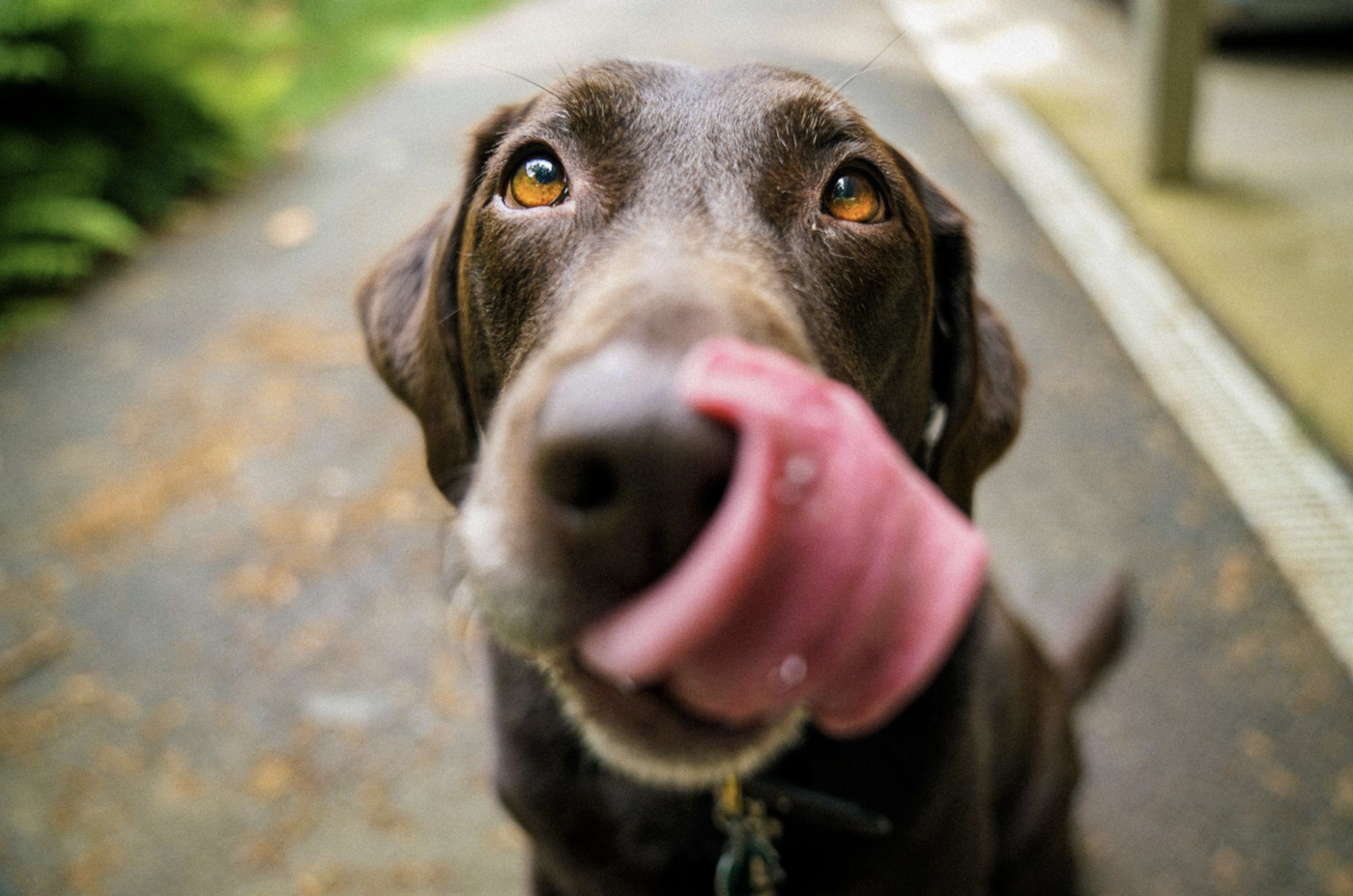 Shutterstock
Shutterstock
Dogs use their mouths to explore the world, and licking is one of the ways they gather information about their surroundings. Licking helps dogs taste and smell at the same time, which gives them a better sense of their environment. When your dog licks you, they could be trying to gather information about where you’ve been, what you’ve touched, or even what mood you’re in. Just as they sniff objects to explore, licking provides them with sensory information. This behavior is especially common in curious dogs who like to investigate everything around them.
Coping with Anxiety or Stress
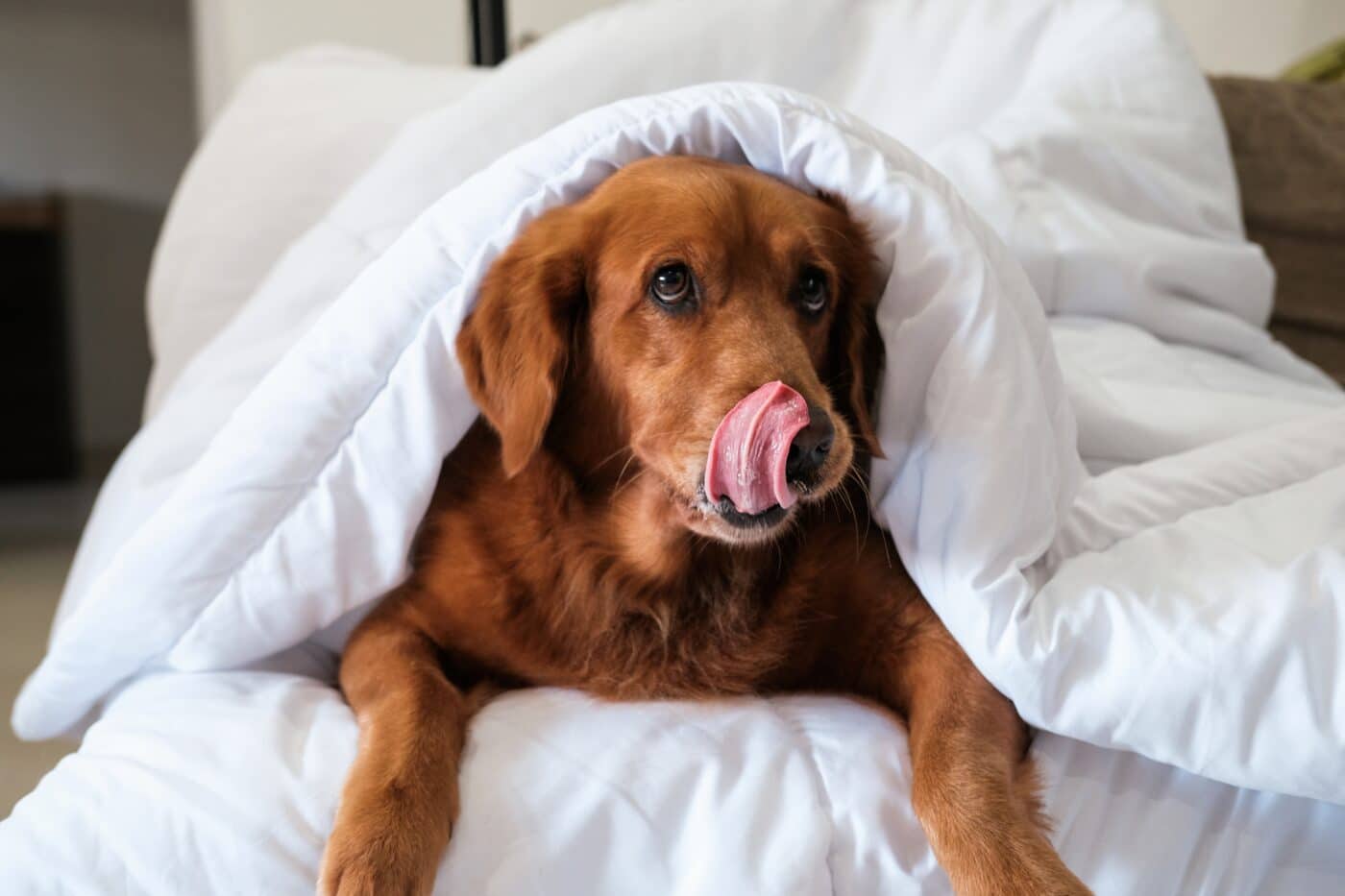 Shutterstock
Shutterstock
Licking can also be a self-soothing behavior for dogs, particularly when they are feeling anxious or stressed. Similar to how humans may bite their nails or pace when stressed, dogs may lick excessively as a way to calm themselves. If your dog tends to lick you during thunderstorms, vet visits, or other anxiety-inducing situations, it’s likely they are using licking as a coping mechanism. This behavior can also extend to excessive licking of their own bodies, furniture, or other objects. If licking becomes obsessive, it’s important to address the root cause of their anxiety to help them feel more secure.
Healing Instincts
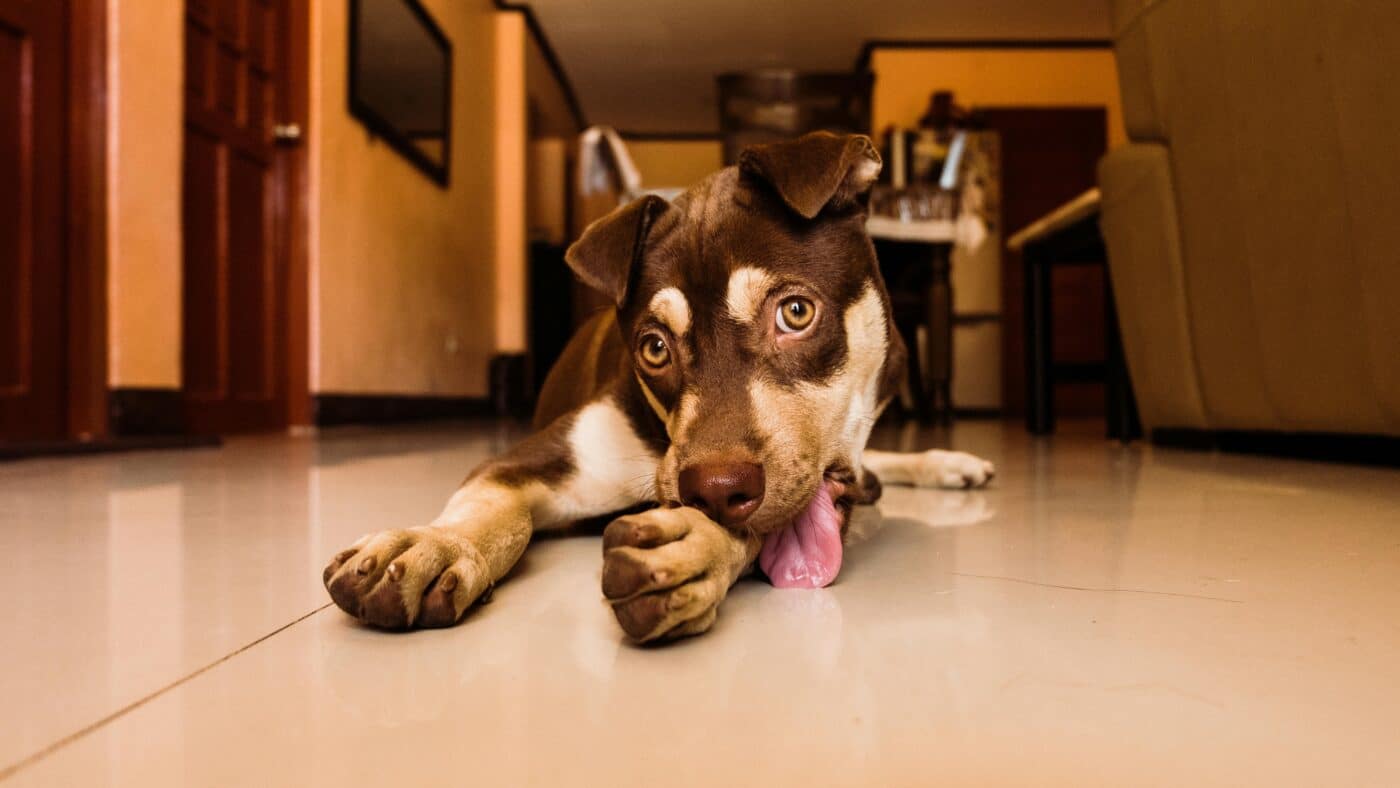 Shutterstock
Shutterstock
Dogs have an instinctual drive to lick their wounds, both their own and those of others. This behavior stems from their natural healing instincts, as licking can help clean wounds and remove debris. While it’s a bit different when they lick humans, the underlying behavior is the same. Dogs may lick your skin or cuts as a way of “helping” with healing, using their natural instincts to provide care. Although it’s well-intentioned, it’s essential to monitor this behavior because excessive licking of wounds can introduce bacteria and delay healing.
Communicating Hunger
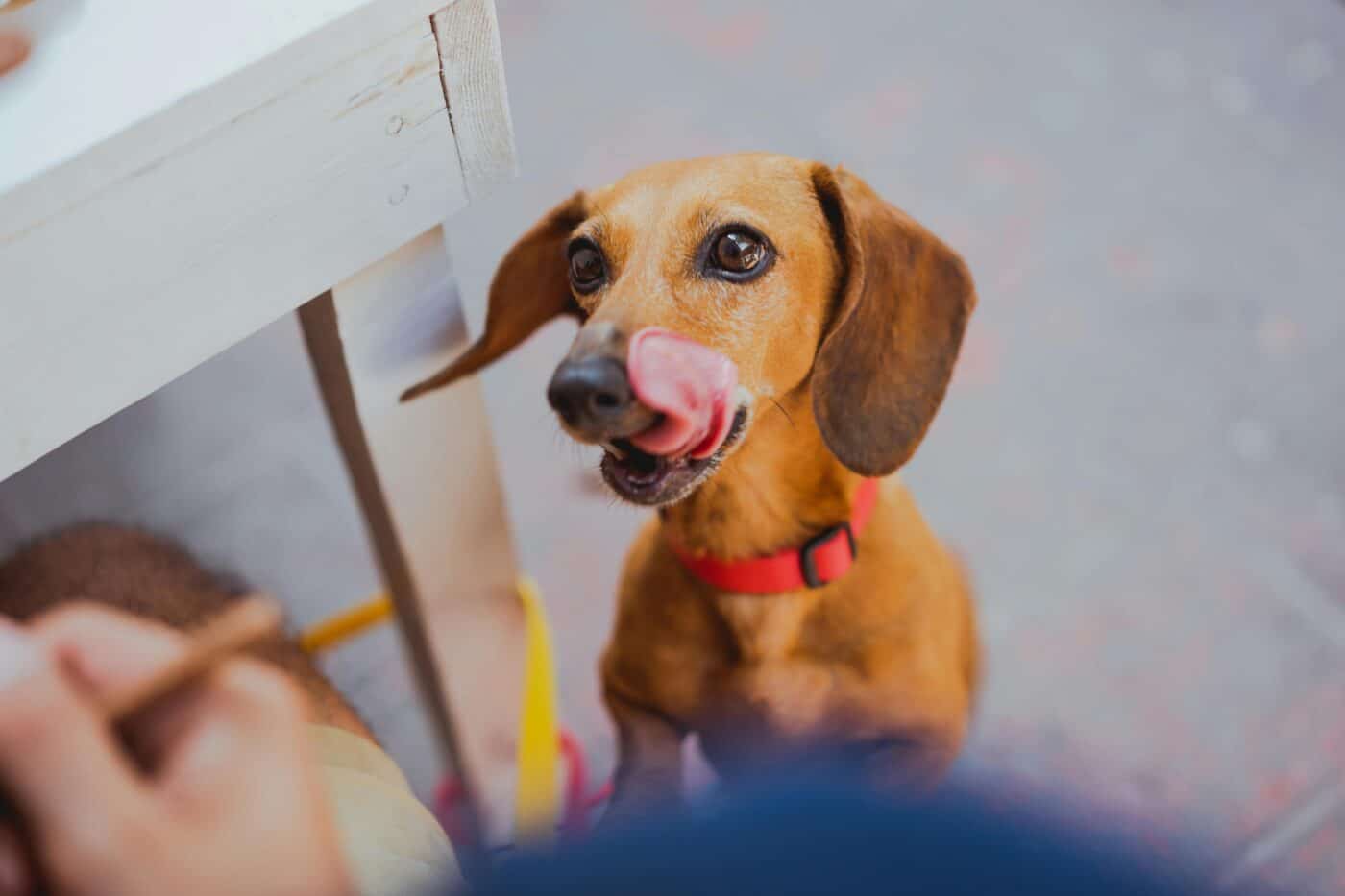 Shutterstock
Shutterstock
In some cases, licking may be your dog’s way of letting you know they’re hungry. Puppies lick their mother’s mouths as a way of encouraging her to regurgitate food, and this behavior can sometimes persist into adulthood. If your dog licks you around mealtime or when they think food is involved, they may be signaling that they’re ready for a meal or a treat. Dogs learn quickly how to communicate with their owners, and licking can become part of that communication process when it comes to food. So, if your dog is licking you around the kitchen, they may be dropping a not-so-subtle hint!
Expressing Empathy
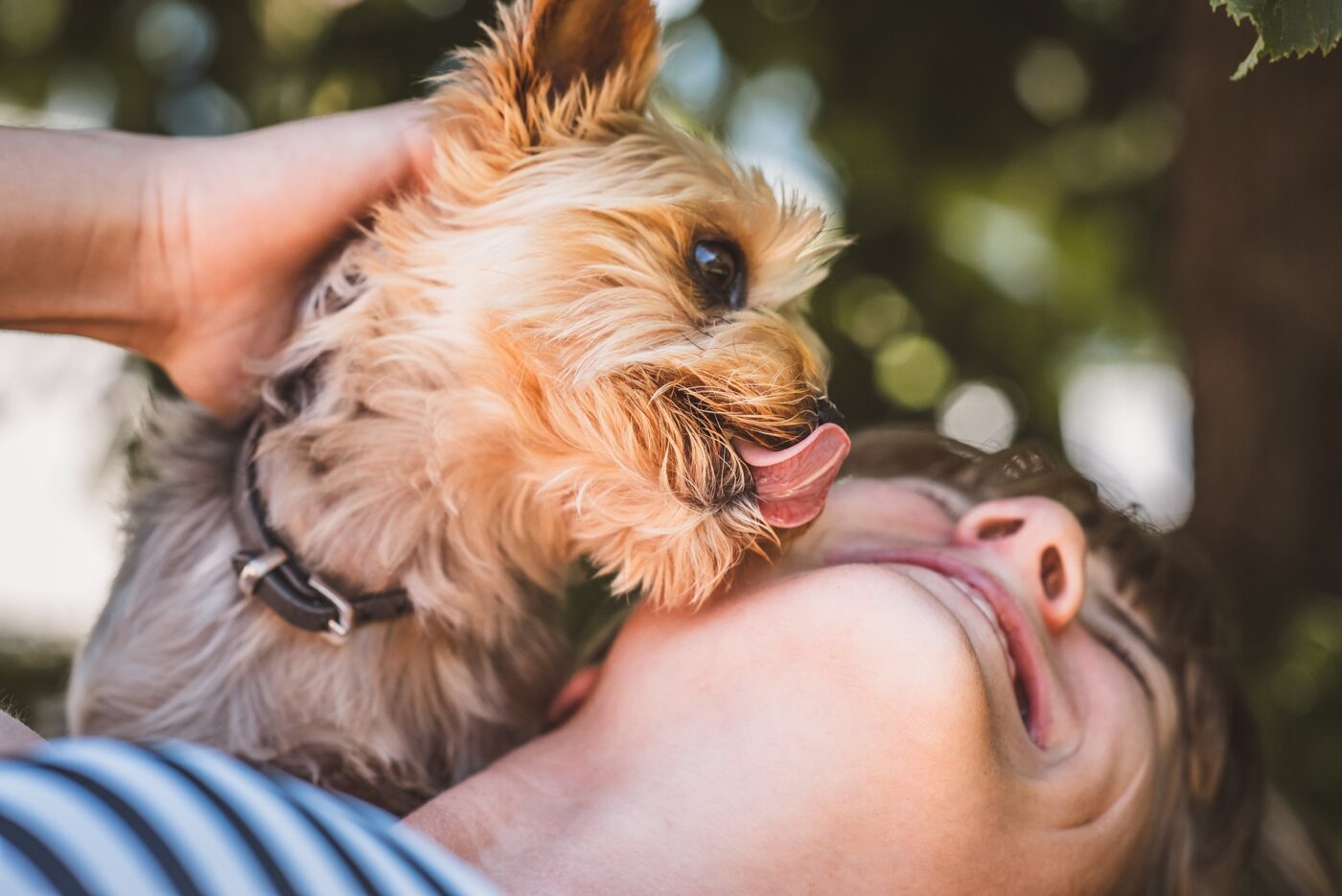 Shutterstock
Shutterstock
Dogs are highly attuned to the emotions of their owners, and licking can sometimes be a way for them to offer comfort or express empathy. If you’re feeling sad, stressed, or upset, your dog may lick you to show support and offer reassurance. This empathetic behavior is part of what makes dogs such wonderful companions. They have an uncanny ability to sense changes in our emotional states, and licking can be their way of saying, “I’m here for you.” Whether it’s a quick lick on the hand or a more persistent gesture, your dog may be trying to comfort you during tough times.
Habitual Behavior
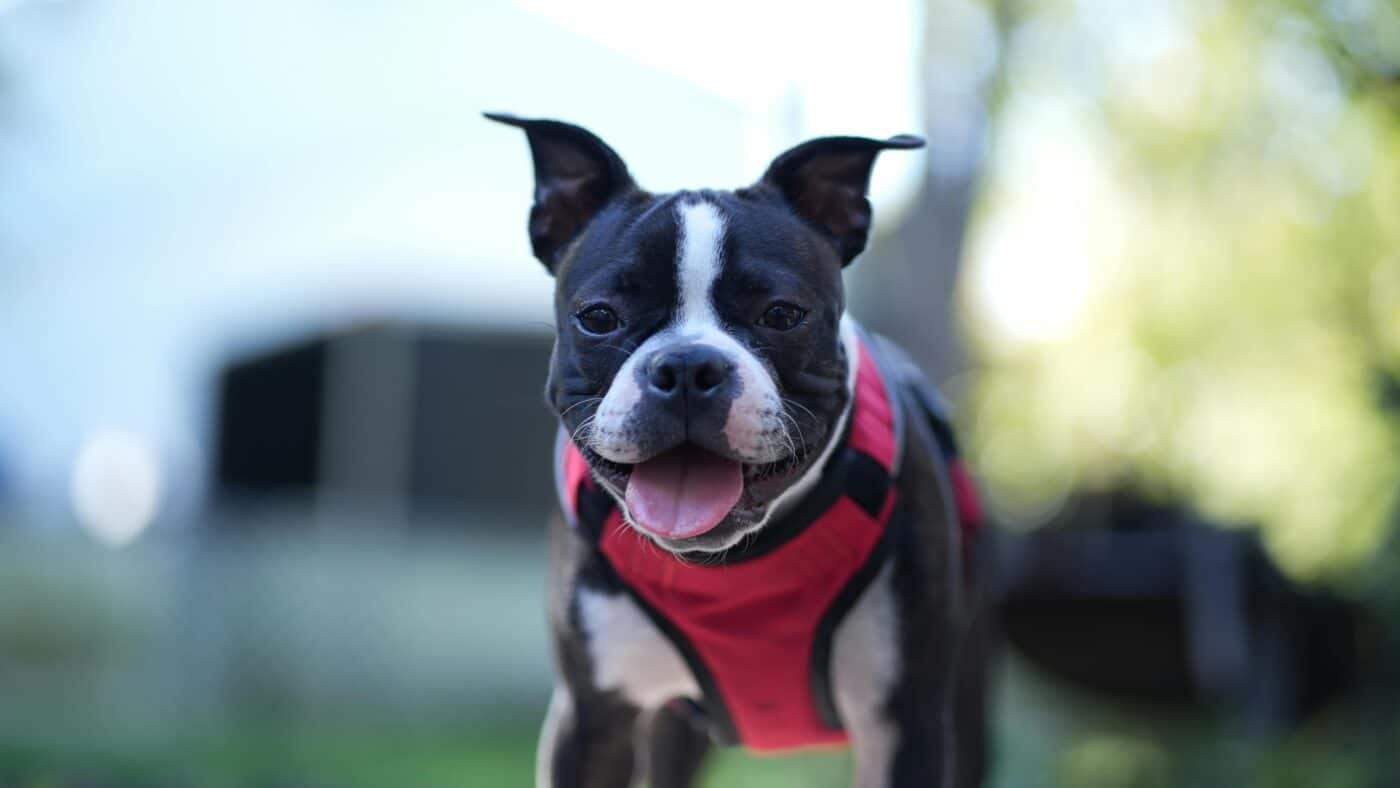 Shutterstock
Shutterstock
For some dogs, licking simply becomes a habit, much like how humans may develop certain repetitive behaviors. If a dog has been allowed to lick for attention or as a means of self-soothing, it can become a habitual action that they engage in regularly. In these cases, the behavior may not be linked to any specific emotional or physical need but rather become part of the dog’s routine. While licking in moderation is generally harmless, excessive licking can become problematic, especially if it starts to cause irritation to your skin. In these cases, redirecting your dog’s attention to other activities can help break the habit.
Health Concerns
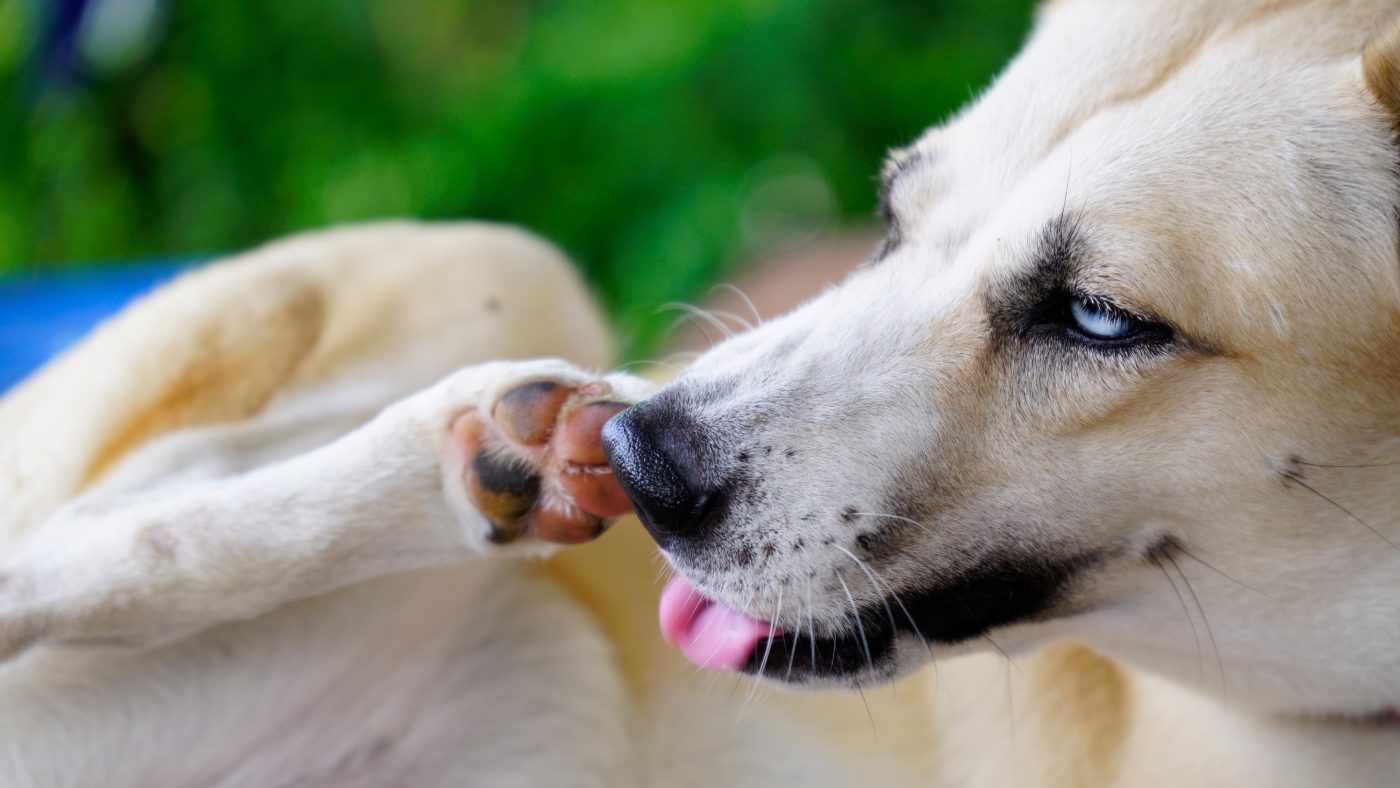 Shutterstock
Shutterstock
In some instances, excessive licking can indicate an underlying health issue, such as allergies, gastrointestinal problems, or skin conditions. If your dog is licking compulsively, it’s essential to rule out any medical reasons for the behavior. Dogs with allergies, for example, may lick themselves or their owners to soothe itchy skin, while dogs with gastrointestinal issues may lick to alleviate nausea. If your dog’s licking behavior suddenly changes or becomes excessive, it’s a good idea to consult with your vet to ensure there’s no underlying health issue contributing to the behavior.
The Lick of Love (and So Much More!)
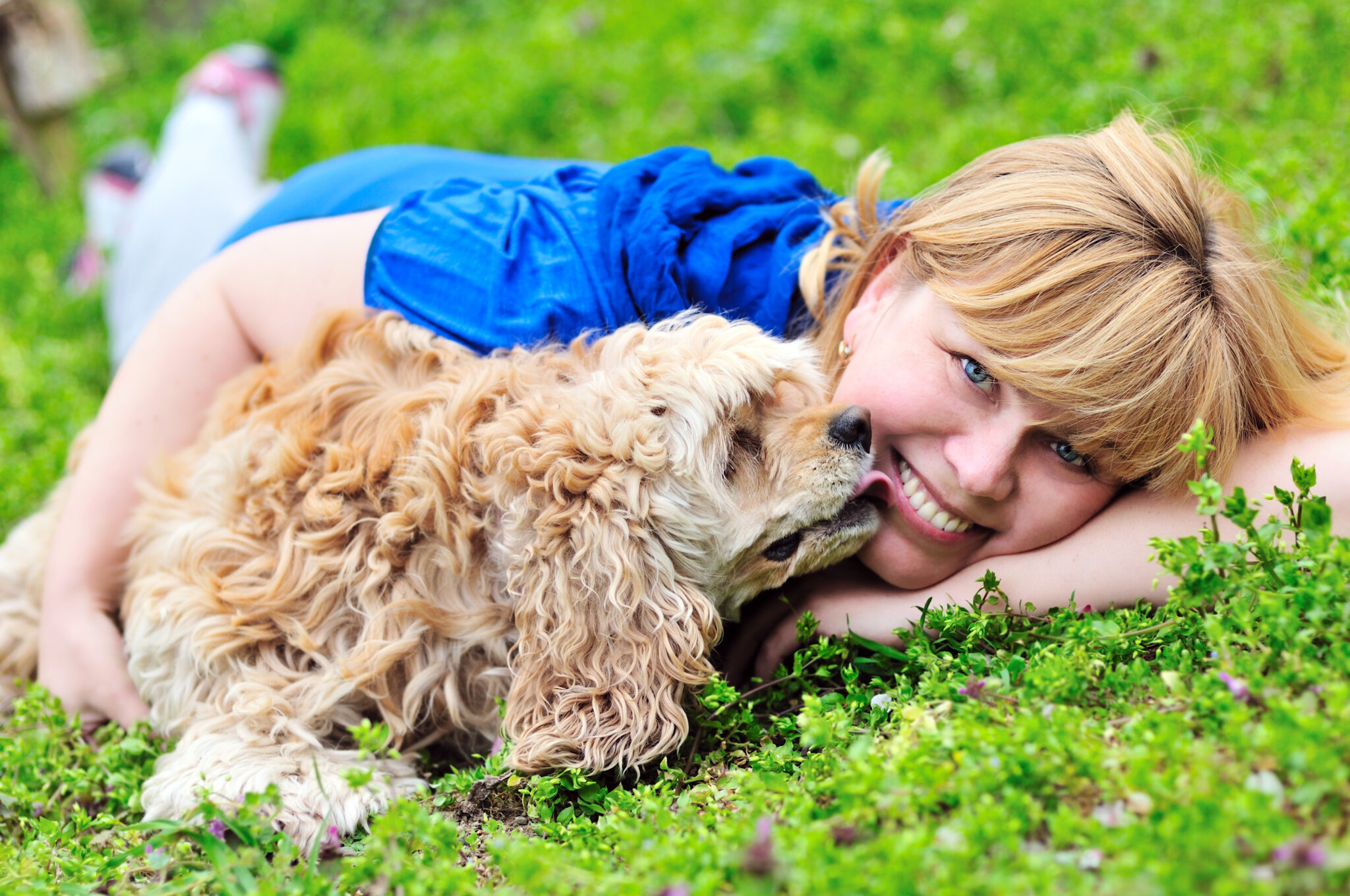 Shutterstock
Shutterstock
While licking is often interpreted as a sign of affection, it’s clear that dogs lick for various reasons. Whether your dog is showing love, seeking attention, exploring their world, or even trying to heal your wounds, licking is a complex behavior with many meanings. By understanding why your dog is licking you, you can better interpret their needs and strengthen your bond. Whether it’s a loving lick on the cheek or a quick taste of your salty skin, your dog’s licking behavior communicates with you—and it goes far beyond affection.
 Toledo, United States.
Toledo, United States.
